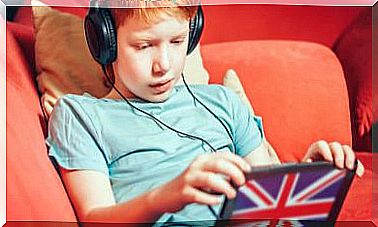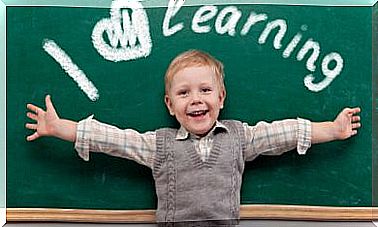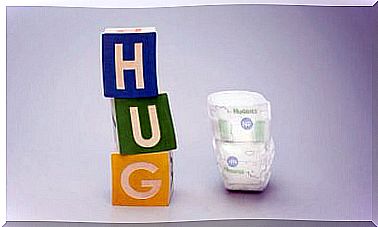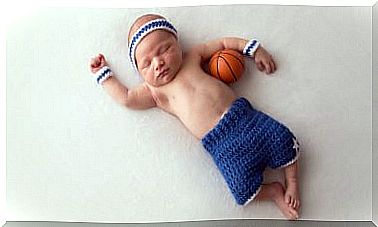Why Children Play At Being Animals

A fundamental step for children to learn about their environment and about life is through play. It is common to see the little ones playing the roles of what is known to them ; that is to say the father, the mother, the teacher, the superheroes of television. However, many parents wonder why children pretend to be animals.
We must understand that the choices that the child makes when participating in the so-called role plays have a lot to do with their affections, interests and their intention to understand the other. In most cases, this is linked to admiration.
The interpretation of characters
Having children pretend to be someone else or frolic thinking that they are a dog or a cat is one of the most common actions for them. Wanting to be someone else is part of a desire to know based on experimentation and empathy.
Of course, this is one of the easiest ways to understand and recreate what happens around the child. Thanks to the application of this way of playing, adults can discover key traits of the child’s personality.
Now, playing to be someone else is not an exclusive action of children. There is a wide variety of board games for adults in which the aim of fun lies in trying to represent the character assigned to them in the most faithful way.
Likewise, if we delve further into the field of psychology, we will find multiple examples of behaviors, sometimes wrong, linked to imitation.
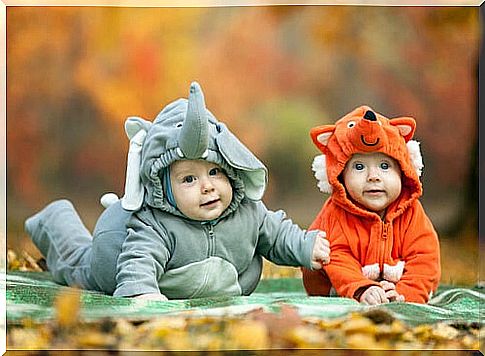
Why do children pretend to be animals
It is clear that playing to imitate real or imaginary people, skills, professions and beings greatly attracts the little ones in the house. But what happens when the choice of the little one is almost exclusively an animal role?
In principle, we must understand that, due to the tenderness that animals inspire, we adults are constantly bombarding our children with images, stories, toys and even references about dogs, bears, rabbits, etc.
In fact, some of the first phrases we teach children alongside ‘mommy’, ‘daddy’, or ‘baby’ are ‘wow wow!’, ‘Meow!’ or ‘pio pio!’ . This makes sense if we understand how easy it can be to repeat onomatopoeia and, in turn, teach the little one about the nature that surrounds us.
On the other hand, it is notorious that, in almost all children’s programs, the main characters are humanized animals that talk, cook, go to work and school.
From this overstimulation it can be inferred that the child idealizes animals in the same way that he does with superheroes. For this reason, he wants to recreate what for him are adventures of games of beings with whom he feels an enormous familiarity.
The advantages of playing at being an animal
Another reason why a child wants to play at being an animal is because of the freedom that these types of characters offer. When children are taught about manners and good manners, analogies are made with messiness or being dirty and the bond of animals to these behaviors.
Children can suddenly feel stiff with rules such as sitting well, not screaming, not touching the floor; on the contrary, being able to represent an animal gives them that absolute freedom.
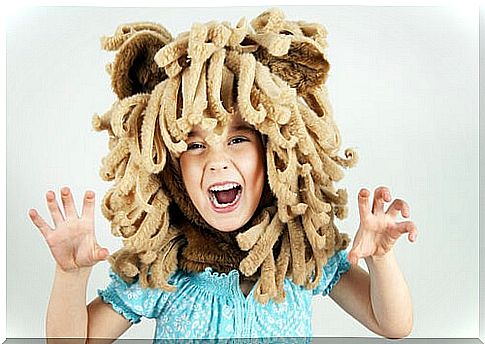
If they are playing at being a dog or cat, they will be able to jump and run and be in contact with the grass; if they play at being a bear they may be grumpy. In short, this gives them a universe of fun possibilities.
In addition to the fun, the benefits of playing animal can be seen in practicing non-verbal language development. This improvement occurs when trying to communicate as if it were a dog or a cat, which also generates an increase in their cognitive development.
Finally, it is worth clarifying that, although it is clear that role-playing games with animals bring multiple benefits for the child’s development, if the child takes an obsessive attitude and stops seeing the difference between the reality and the fiction of the game, You will have to take him to a psychology specialist to study his case in a particular way.

